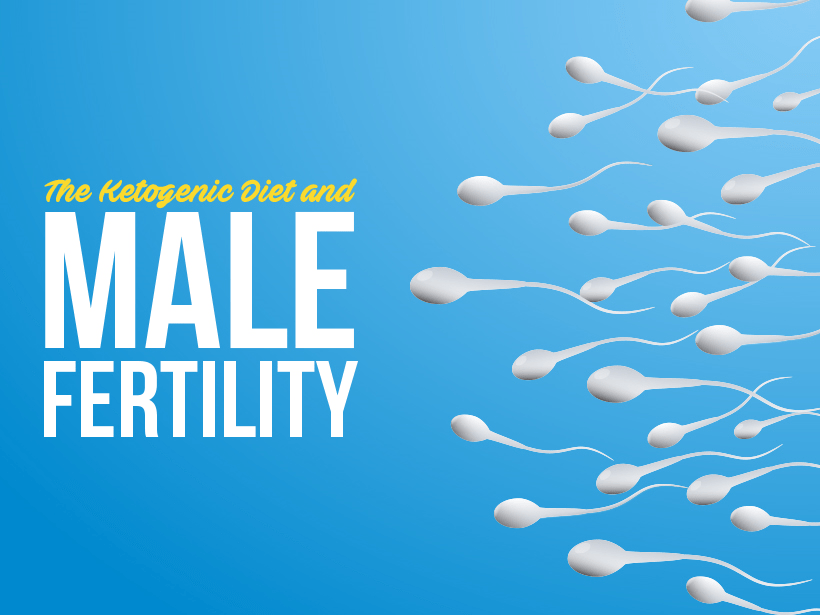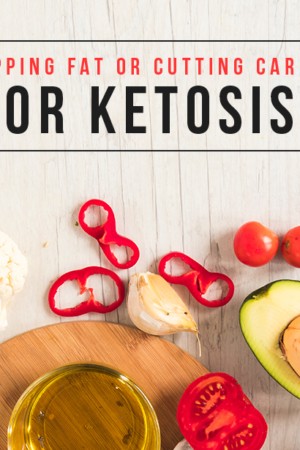Numerous studies conclude that healthy fats and nutrients of the ketogenic diet are excellent for male fertility. Men with diets high in fresh vegetables, legumes, nuts, and fish have a higher sperm count, better sperm shape, and more active sperm than men who follow the typical western diet.
The Importance of Omega-3 and Omega-6 Fatty Acids
A 2012 study published in Human Reproduction found that a high intake of omega-3 fats was positively related to sperm health in men.1 The same study also found that men who consume a high level of monounsaturated fats, found in burgers, fries, and other junk foods, produced fewer and less active sperm.
Another study from 2012 published in Biology and Reproduction shows the importance of tree nuts, specifically walnuts, in the significant improvement of sperm quality. In the study, men who ate a Western-style diet increased the amount of walnuts in their diets. Walnuts contain Omega-6 and Omega-3 fatty acids, and alpha-linolenic acid (ALA). The findings show that the group of men who increased their walnut intake saw a significant improvement in sperm vitality, motility, and morphology.2 That’s nuts!
The Healthiest Foods for Male Fertility
Another study, also published in 2012, shows that men who ate a diet full of fish, chicken, fruit, vegetables, and legumes had more active, healthy sperm than men who ate a typical “Western” diet of pizza, snacks, energy drinks, and sweets.3
We do know that certain nutritional compounds are shown to improve male fertility:4
- Carnitine – found in meat, poultry, and milk. Carnitine plays a critical role in energy production.
- Arginine – found in turkey, pork loin, chicken, pumpkin seeds, and peanuts. Arginine helps improve blood flow.
- Zinc – found in crab, lobster, beef, squash seeds, chicken, pork, and beans. Zinc increases sperm count and improves sperm quality.
- Selenium – found in brazil nuts, sunflower seeds, eggs, spinach, mushrooms, beef, and tuna. Selenium defends against oxidative stress and improves blood flow.
- Vitamin B-12 – found in fish, nuts, milk, poultry, and shellfish. Vitamin B-12 keeps blood cells healthy and helps make DNA, the genetic material in all cells.
Antioxidants for Male Fertility
Numerous antioxidants improve male fertility, such as:
- Vitamin C – found in oranges, papayas, broccoli, tomatoes, peas, and kale. Vitamin C lessens oxidative stress, increases testosterone levels, and prevents sperm from clumping together. This important antioxidant is also found in high amounts in the heads of sperm.
- Vitamin E – found in almonds, pine nuts, avocados, spinach, tomatoes, broccoli, and olives. Vitamin E increases blood flow and oxygen to the genitalia and promotes healthy cells.
- Glutathione – found in broccoli, cauliflower, cabbage, Brussels sprouts, garlic, and spinach. Glutathione improves sperm motility and overall fertility.
- Coenzyme Q10 – found in organ meats such as liver, beef, sardines, mackerel, spinach, and broccoli. CoQ10 helps increase sperm count and improve sperm quality.
There is no doubt that diet affects male fertility. Men on the ketogenic diet are likely to experience more robust and healthy fertility. Keto-friendly foods are naturally high in the nutrients and antioxidants that benefit sperm count, quality, and motility.
NUTRITIONAL DISCLAIMER
The content on this website should not be taken as medical advice and you should ALWAYS consult with your doctor before starting any diet or exercise program. We provide nutritional data for our recipes as a courtesy to our readers. We use Total Keto Diet app software to calculate the nutrition and we remove fiber and sugar alcohols, like erythritol, from the total carbohydrate count to get to the net carb count, as they do not affect your blood glucose levels. You should independently calculate nutritional information on your own and not rely on our data. The website or content herein is not intended to cure, prevent, diagnose or treat any disease. This website shall not be liable for adverse reactions or any other outcome resulting from the use of recipes or recommendations on the Website or actions you take as a result. Any action you take is strictly at your own risk.
- A Ketogenic Pregnancy: Is It Safe? - June 20, 2018
- Perfect Keto Nut Butter is, Well, Perfect for Keto - May 14, 2018
- The Silicon Valley’s Favorite Diet? Brain-Boosting Keto - May 11, 2018




